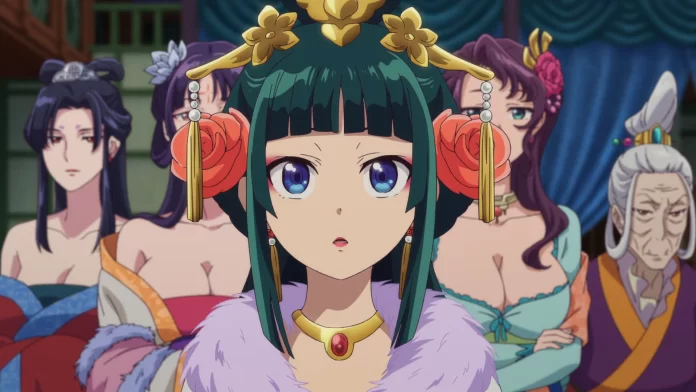The manga and anime world has recently been rocked by the news of Nekokurage, the celebrated artist behind The Apothecary Diaries, being sentenced for tax evasion. This high-profile case has captured the attention of fans and industry insiders alike, raising questions about financial responsibility in the creative sector. In this article, we delve into the specifics of Nekokurage’s tax evasion case, its implications for the manga industry, and what it means for the future of The Apothecary Diaries.
The Details of Nekokurage’s Tax Evasion Case
Nekokurage, whose real name remains undisclosed, has been in the spotlight following a court ruling for tax evasion. According to recent reports from Japan, Nekokurage has been sentenced to ten months in prison, with the sentence suspended for three years. This means that while the artist will not serve jail time, they are subject to other legal restrictions and conditions. Additionally, Nekokurage has been fined 11 million yen, which translates to approximately $72,000 USD. The severity of the financial penalty reflects the seriousness with which the Japanese legal system treats tax evasion.
Understanding Tax Evasion and Its Consequences
Tax evasion involves intentionally avoiding payment of taxes owed to the government. In Nekokurage’s case, the charges likely stem from discrepancies in income reporting or underreporting earnings derived from their successful manga series. Tax evasion is a criminal offense that can lead to substantial fines and legal repercussions. The significant fine imposed on Nekokurage highlights the financial gravity of their offense and serves as a cautionary tale for others in the industry.
The Broader Impact on the Manga Industry
Nekokurage’s case sheds light on broader issues within the manga industry, particularly regarding financial management and compliance. The industry is known for its demanding work schedules and the pressure placed on artists to deliver high-quality content consistently. This high-pressure environment can sometimes lead to lapses in financial oversight. The case highlights the need for manga artists and creators to be vigilant about their financial responsibilities.
For many artists, especially those who are relatively new or emerging, managing finances can be challenging. The complexity of tax regulations and the fast-paced nature of the industry can make it difficult to keep track of income and expenses. Nekokurage’s case highlights the importance of financial literacy and the need for professional advice to navigate these complexities.
The Apothecary Diaries: Resilience Amidst Controversy
Despite the legal issues faced by Nekokurage, The Apothecary Diaries continues to enjoy widespread success. The manga, which debuted in May 2017, has captivated readers with its unique blend of romance, historical intrigue, and mystery. The ongoing success of the series is evident from its strong fan base and critical acclaim. The anime adaptation has further expanded its reach, and a second season is scheduled for release in 2025.
The decision to move forward with the series despite the controversy surrounding Nekokurage reflects the resilience of both the IP and its creators. The support from the fanbase and the commitment of the production team demonstrate that The Apothecary Diaries remains a beloved and significant part of the manga and anime landscape.
Financial Lessons and Industry Implications
Nekokurage’s tax evasion case provides valuable lessons for the manga industry and beyond. It highlights the necessity for artists and creatives to maintain strict financial discipline. Understanding tax obligations, seeking professional guidance, and implementing robust financial practices are crucial steps to avoid legal issues.
For those in the creative sector, particularly manga artists, this case serves as a reminder of the importance of financial education. Many artists may lack the resources or knowledge to manage their finances effectively, making it essential to foster a culture of financial literacy within the industry. By addressing these gaps, the industry can help prevent similar cases in the future and ensure that creative talents can focus on their work without facing legal challenges.


